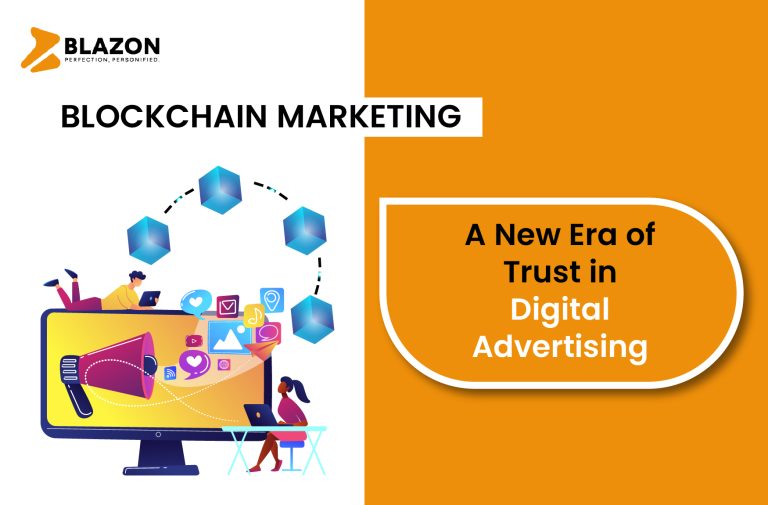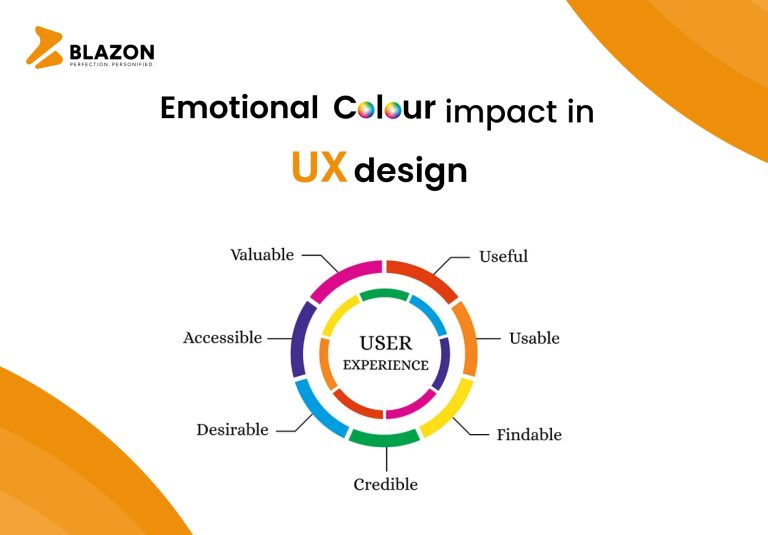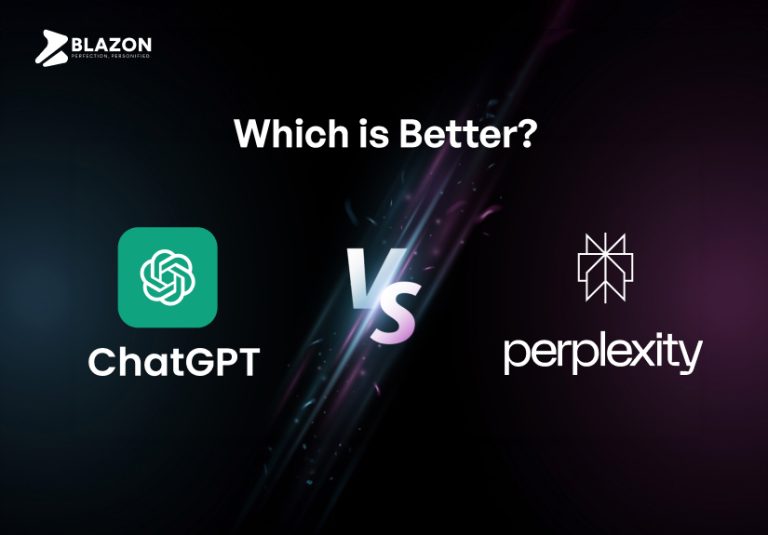Blockchain Marketing: A New Era of Trust in Digital Advertising

In the ever-evolving landscape of digital marketing solutions, a revolutionary force has emerged that promises to reshape the foundations of trust and transparency in blockchain advertising. In this era of constant connectivity and data-driven strategies, businesses are relentlessly seeking ways to bolster consumer confidence while navigating the complexities of the digital realm. This quest for authenticity finds its answer in the transformative potential of blockchain technology.
Blockchain, known as the bedrock of cryptocurrencies, extends its prowess beyond the financial sector, infiltrating realms like digital marketing with profound implications. At its core, blockchain offers an immutable and decentralized ledger, impervious to manipulation, ensuring the utmost integrity of transactions and interactions. This seismic shift towards trust and accountability is redefining the way brands engage with their audiences.
This blog delves into the amalgamation of blockchain and digital advertising, an alliance that begets unparalleled transparency, data security, and targeted precision. We unravel the intricate threads that weave this new era of trust, exploring how blockchain’s tamper-resistant nature revolutionizes ad verification, combats fraudulent activities, and elevates the standards of consumer privacy. Read on as we navigate the transformative landscape of blockchain marketing, where every click, every impression, and every interaction is etched in the digital bedrock of trust.
The Evolution of Digital Marketing Solutions
Digital marketing has become an integral part of modern business strategies, enabling brands to connect with their target audiences in more personalized and impactful ways. However, this landscape is not without its challenges. As digital channels proliferate and data-driven strategies become more sophisticated, the issue of trust has taken center stage. Consumers are demanding greater transparency into how their data is collected, used, and protected.
What is Blockchain Technology?
Blockchain, initially associated with cryptocurrencies like Bitcoin, has expanded its horizons beyond finance, finding applications in various industries, including digital marketing. At its core, blockchain is a decentralized and immutable ledger that records transactions in a secure and transparent manner. This technology has the potential to address some of the key pain points in digital advertising.
Enhancing Transparency and Authenticity
One of the fundamental challenges in digital advertising is verifying the authenticity of ad impressions and clicks. Ad fraud has been a persistent issue, costing businesses billions of dollars annually. Blockchain’s decentralized nature provides a solution by offering an immutable record of ad impressions and interactions. This enables advertisers to verify that their ads were displayed as intended and that the engagement metrics are accurate.
Combating Ad Fraud
Ad fraud comes in various forms, such as click fraud and impression fraud. These fraudulent activities not only waste advertisers’ budgets but also erode trust in digital advertising. Blockchain’s transparency and smart contract capabilities allow for real-time tracking of ad delivery and engagement. Smart contracts automatically trigger payments to publishers when predefined conditions are met, reducing the risk of fraudulent activity.
Elevating Data Privacy
The misuse of consumer data has fueled concerns about data privacy and security. Blockchain’s encryption and decentralization offer a solution to these concerns. Instead of relying on a centralized repository of data, blockchain distributes data across a network of nodes, reducing the risk of a single point of failure or data breach. Users can have more control over their data, granting permission for access on a need-to-know basis.
Empowering Consumer Engagement
Blockchain technology can incentivize and empower consumers to engage with advertisements more willingly. By participating in token-based reward systems, consumers can receive tokens for interacting with ads or providing feedback. These tokens can be used for various purposes within the ecosystem, creating a win-win scenario for both advertisers and consumers.
Challenges and Considerations
While the potential of blockchain advertising is promising, it’s important to acknowledge the challenges that come with its adoption. Integrating blockchain into existing digital marketing solutions requires technical expertise and investment. Scalability and regulatory considerations also play a role in shaping the future of blockchain in advertising.
The Road Ahead
Blockchain marketing represents a transformative shift in the digital advertising landscape. It introduces a level of transparency, accountability, and data security that has the potential to restore consumer trust in online interactions. As businesses continue to explore ways to navigate the complexities of digital marketing, the integration of blockchain technology holds the promise of a more trustworthy and efficient ecosystem.
In the next section of our blog, we will take a closer look at the primary benefits of blockchain marketing in digital advertising.
Advantages of Blockchain Marketing in Digital Advertising
In the fast-paced world of digital marketing solutions, staying ahead of the curve is essential for businesses aiming to thrive in the digital age. One of the most innovative and transformative technologies making waves in the realm of digital marketing is blockchain. With its decentralized and transparent nature, blockchain advertising brings forth a new era of trust and efficiency that offers a plethora of advantages for businesses and consumers alike.
Advantage #1
Transparency and Trustworthiness
Transparency has become a scarce commodity in the digital advertising landscape. Businesses striving to build trust with their customers often face skepticism due to concerns over data privacy and authenticity. Blockchain technology addresses these challenges by providing an immutable and transparent ledger that records every interaction and transaction.
In blockchain advertising, this means that every click, impression, and engagement is securely stored on the blockchain, ensuring complete traceability and accountability. This transparency not only enhances customer trust but also helps advertisers verify the authenticity of their campaigns, reducing the risk of ad fraud.
Advantage #2
Reduced Ad Fraud
Ad fraud is a persistent headache for advertisers in the digital marketing arena. It siphons off budgets and tarnishes the reputation of digital advertising. Blockchain’s decentralized architecture and smart contract capabilities enable real-time tracking of ad delivery and engagement. Smart contracts automatically trigger payments when predetermined conditions are met, leaving no room for fraudulent activity. This not only prevents ad fraud but also streamlines the payment process, making it more secure and efficient.
Advantage #3
Enhanced Data Security
Data breaches and privacy concerns have heightened the importance of safeguarding consumer data. Blockchain’s encryption and distributed ledger system offer enhanced data security. Unlike traditional centralized databases, where a single breach can compromise vast amounts of data, blockchain’s decentralized structure makes it significantly more resistant to hacks. Users maintain control over their data, granting access on a need-to-know basis, thereby mitigating the risk of unauthorized access and data misuse.
Advantage #4
Improved Customer Engagement
Blockchain marketing has the potential to transform the way businesses engage with their customers. By incorporating token-based incentive systems, advertisers can encourage consumers to willingly interact with ads, providing valuable feedback and insights. These tokens can be exchanged for rewards or discounts, creating a mutually beneficial relationship between advertisers and consumers. This approach not only enhances engagement but also empowers consumers to have a more active role in shaping their online experiences.
Advantage #5
Streamlined Supply Chain
Blockchain’s benefits extend beyond consumer-facing advertising. It can also revolutionize the back-end processes of digital marketing, particularly in the supply chain. Advertisers often deal with a complex ecosystem of publishers, intermediaries, and platforms. Blockchain’s transparent and tamper-proof record-keeping simplifies supply chain management by providing an auditable trail of transactions. This can lead to more efficient collaborations, reduced disputes, and a better allocation of resources.
Advantage #6
Better Targeting and Personalization
Blockchain’s data-sharing capabilities are poised to transform how consumer data is utilized for targeting and personalization. With consumers having more control over their data and the ability to grant permission for specific data sharing, advertisers can access accurate and relevant information to create more personalized campaigns. This shift ensures that consumers receive advertisements that resonate with their preferences, leading to a more positive user experience.
Advantage #7
Enhanced ROI Measurement
Measuring return on investment (ROI) in digital advertising can be challenging due to discrepancies in data and attribution models. Blockchain’s transparent ledger provides a single source of truth for all stakeholders involved in an ad campaign. Advertisers, publishers, and agencies can access the same verifiable data, eliminating discrepancies and disputes. This transparency not only leads to more accurate ROI measurement but also promotes collaboration and trust among stakeholders.
Advantage #8
Global Accessibility and Decentralization
Blockchain technology operates on a global scale, accessible to anyone with an internet connection. This decentralized nature eliminates geographical boundaries, allowing businesses to target audiences worldwide without the need for intermediaries or regional restrictions. This democratization of access can open up new markets and opportunities for businesses to expand their reach.
Blockchain marketing has ushered in a new era of trust, transparency, and efficiency in the realm of digital marketing solutions. By addressing challenges related to transparency, ad fraud, data security, and customer engagement, blockchain advertising offers a host of advantages for businesses seeking to navigate the complexities of the digital landscape. As the technology continues to evolve and gain traction, early adopters stand to gain a competitive edge by harnessing the transformative power of blockchain in their digital marketing
Conclusion
The convergence of blockchain technology and digital marketing solutions heralds a new era of trust and transparency in the digital advertising space. By addressing challenges related to authenticity, fraud, data privacy, and consumer engagement, blockchain advertising has the potential to reshape the way brands and consumers interact online. As the technology matures and adoption increases, businesses that embrace blockchain marketing are poised to build stronger, more authentic relationships with their target audiences in this ever-evolving digital landscape.
If you wish to embrace blockchain marketing as a new era of trust in digital advertising, you can get in touch with Blazon. The team of professionals at Blazon will help you achieve your digital marketing goals.
© 2023 Blazon All Rights Reserved.









 +91 97866 99000
+91 97866 99000 (720) 500-3435
(720) 500-3435 +4915168619030
+4915168619030





Leave a Reply
You must be logged in to post a comment.